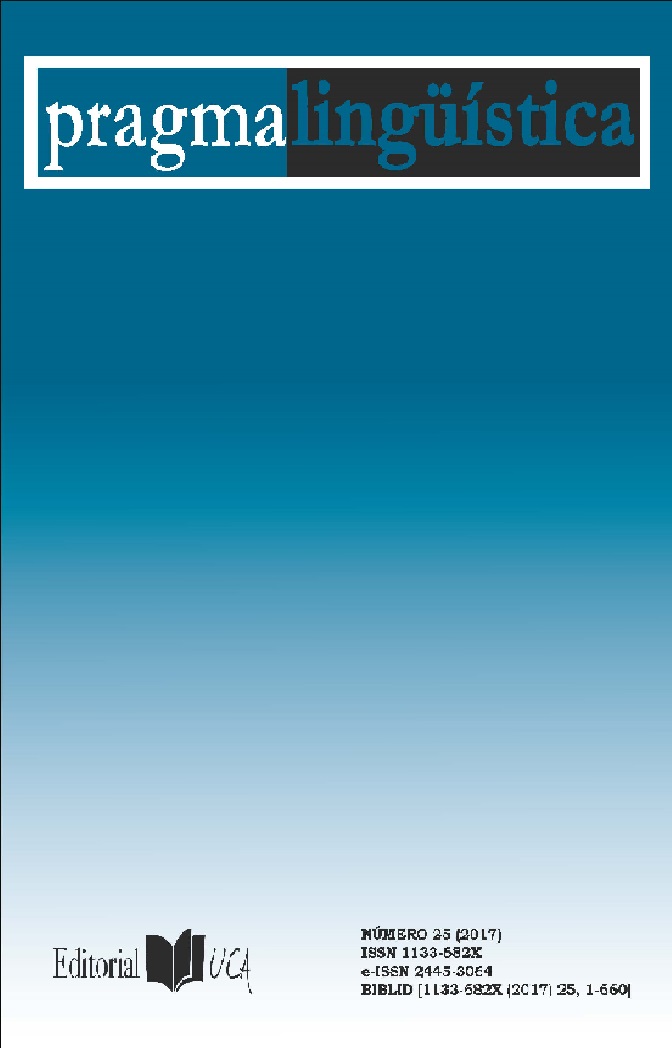El sistema atributivo de devenir en la interlengua de los estudiantes ingleses de español como lengua extranjera. Problemas y propuesta de solución
Palabras clave:
verbo atributivo, cambio de estado, interlengua, corpus de aprendices, análisis de errores.Resumen
Este trabajo presenta un estudio contrastivo de corpus sobre el sistema atributivo de devenir en la interlengua de los estudiantes ingleses de español, donde se examinan los errores encontrados en su producción. En concreto, el análisis de hacerse, ponerse, volverse, quedarse, llegar a (ser) y convertirse en en los corpus de aprendices CEDEL2, CAES y SPLLOC demuestra que la adquisición de este área del español, mucho más desarrollada y restringida sintáctico-semánticamente que su contrapartida inglesa, debido principalmente a la ausencia de un verbo atributivo equivalente a become, resulta extremadamente difícil para los estudiantes ingleses. Los resultados obtenidos constatan, primero, la presencia indiscutible de la lengua materna del estudiante en la adquisición de este grupo verbal español y sugieren, consecuentemente, que su enseñanza debería apoyarse en estudios contrastivos que enfaticen las semejanzas y diferencias entre sendas lenguas, contribuyendo, así, a evitar los errores detectados en la producción de los estudiantes.

